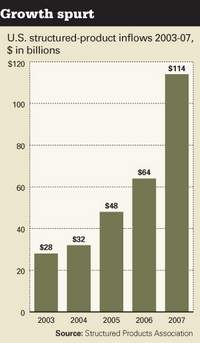by Jake Zamansky, Esq.
It’s only a hunch, but experience tells me you can soon expect to be reading a lot about “ELKS” and other structured investments in the business press.
The name evokes images of a hardy, austere and stable animal able to withstand the harsh elements of the forest. But not in this story. For some Citigroup customers, ELKS might conjure images of a broker who duped you into buying risky securities that were inappropriate with your investment goals.
Citi’s ELKS (equity linked security) product is a risky derivative instrument where an investor is offered a specified return on a structured security tied to an individual stock. Providing the stock maintains a minimum value, the guaranteed return is paid. If the stock ever falls below the minimum value (sometimes around 80 percent), the ELKS immediately convert into shares of that stock. Then if the price of the underlying stock declines, the investor could receive a stock worth much less than the initial investment.
Here’s the catch: ELKS offer potentially higher returns, but the downside risk is unlimited if the stock goes south. If the underlying stock happens to dramatically increase in value, the investor only gets the guaranteed return.
For Citigroup, it’s a classic case of “heads I win, tales you lose.” The bank charges investors an upfront commission to buy ELKS and likely earns additional profits through hedging. Not surprisingly, brokerage firms were aggressively peddling structured derivative products like ELKS to unsophisticated retail investors a few years back, prompting FINRA to warn member firms of concerns that customers didn’t understand the inherent risks.
There’s evidence that FINRA’s warnings weren’t heeded. I represent a retired couple over 80 whose Citi broker last year bought $300,000 worth of ELKS on their behalf. The ELKS were highly unsuitable for retirees simply looking to preserve capital. The highly volatile stocks my client’s ELKS were derived from included Yahoo!, Cemex and Sandisk. The couple has lost nearly a third of their principal as the underlying stock’s value plummeted.
Admittedly, I have only encountered one ELKS case so far, but many brokerages firms peddled similar products using monikers such as PACERS, STRIDES, SPARQS, and ELEMENTS. Some commentators were critical of me when I sounded the early alarm about auction rate securities, but that warning proved quite prescient. Recall, that the SEC uncovered wrongdoing in the ARS market in 2006, but the activity persisted. Sadly, I can’t help but suspect that the experience of my elderly clients with ELKS is not an isolated incident.
Stay tuned.
This article is found on the SeekingAlpha.com website. For the original post, click here.
Tuesday, July 22, 2008
Subscribe to:
Comments (Atom)


